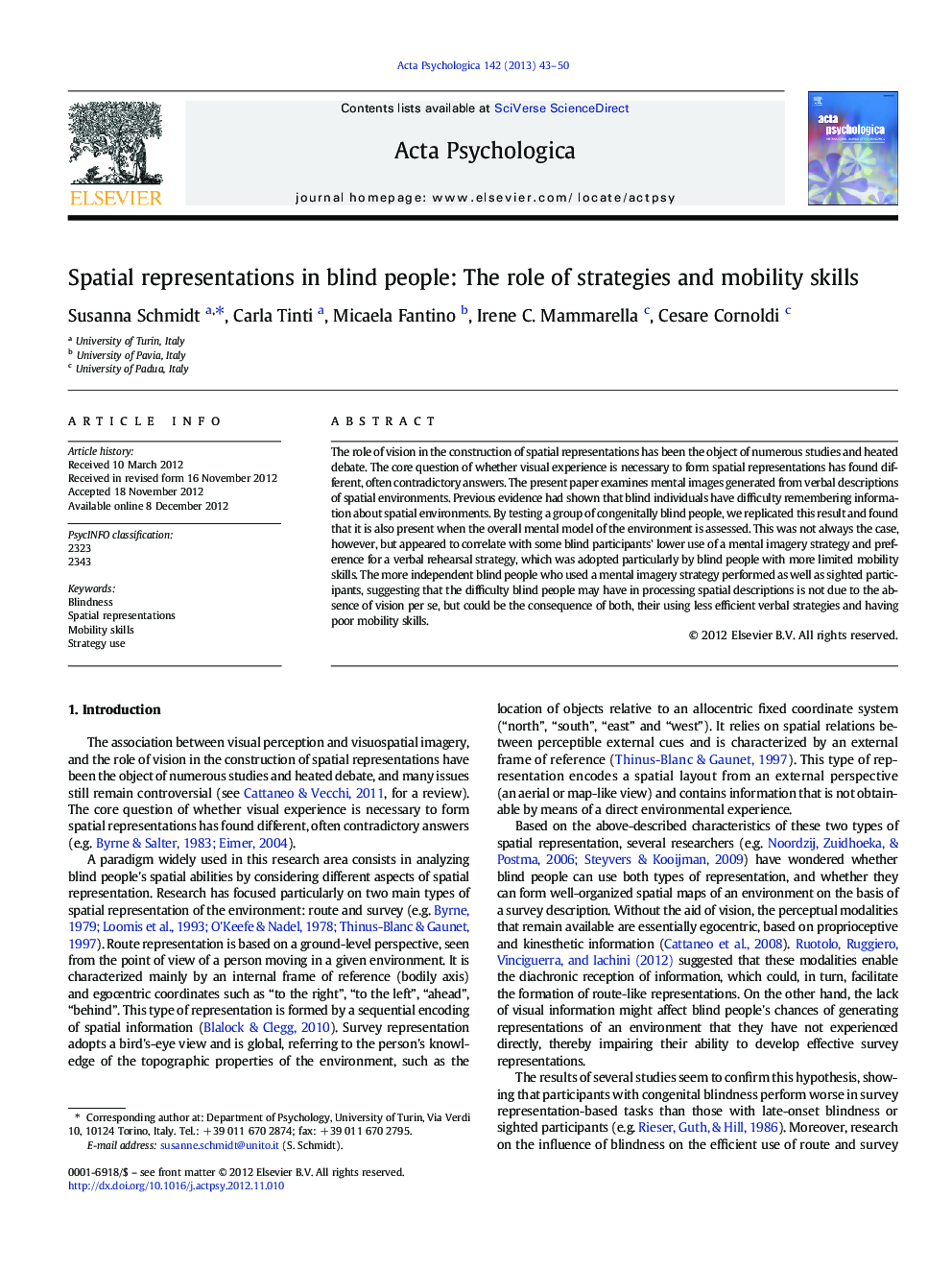| Article ID | Journal | Published Year | Pages | File Type |
|---|---|---|---|---|
| 919937 | Acta Psychologica | 2013 | 8 Pages |
The role of vision in the construction of spatial representations has been the object of numerous studies and heated debate. The core question of whether visual experience is necessary to form spatial representations has found different, often contradictory answers. The present paper examines mental images generated from verbal descriptions of spatial environments. Previous evidence had shown that blind individuals have difficulty remembering information about spatial environments. By testing a group of congenitally blind people, we replicated this result and found that it is also present when the overall mental model of the environment is assessed. This was not always the case, however, but appeared to correlate with some blind participants' lower use of a mental imagery strategy and preference for a verbal rehearsal strategy, which was adopted particularly by blind people with more limited mobility skills. The more independent blind people who used a mental imagery strategy performed as well as sighted participants, suggesting that the difficulty blind people may have in processing spatial descriptions is not due to the absence of vision per se, but could be the consequence of both, their using less efficient verbal strategies and having poor mobility skills.
► Blind and sighted created spatial models derived from survey and route descriptions. ► Verbal strategies were less efficient to create spatial models than spatial strategies. ► High mobility skills enhanced the use of spatial imagery strategies in the blind. ► Blind individuals with high mobility skills performed like sighted participants.
